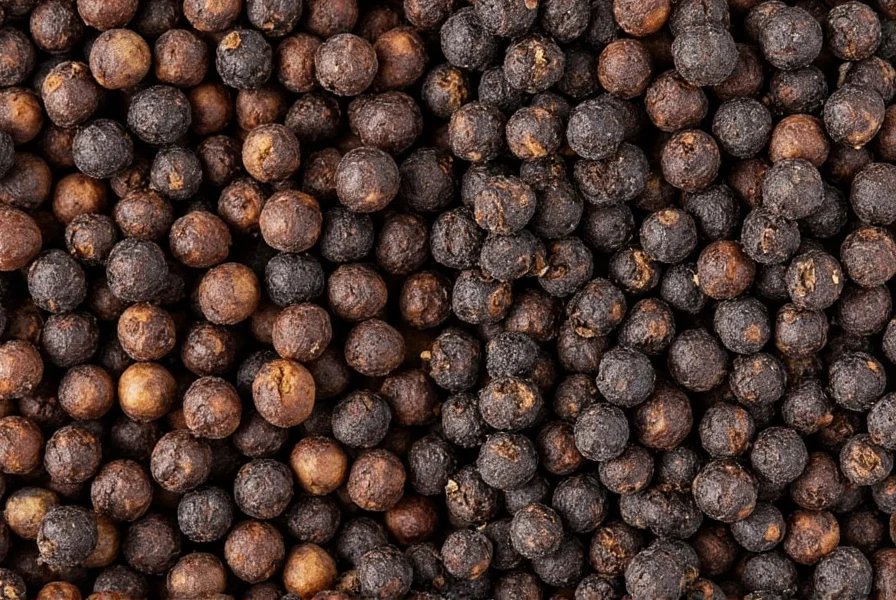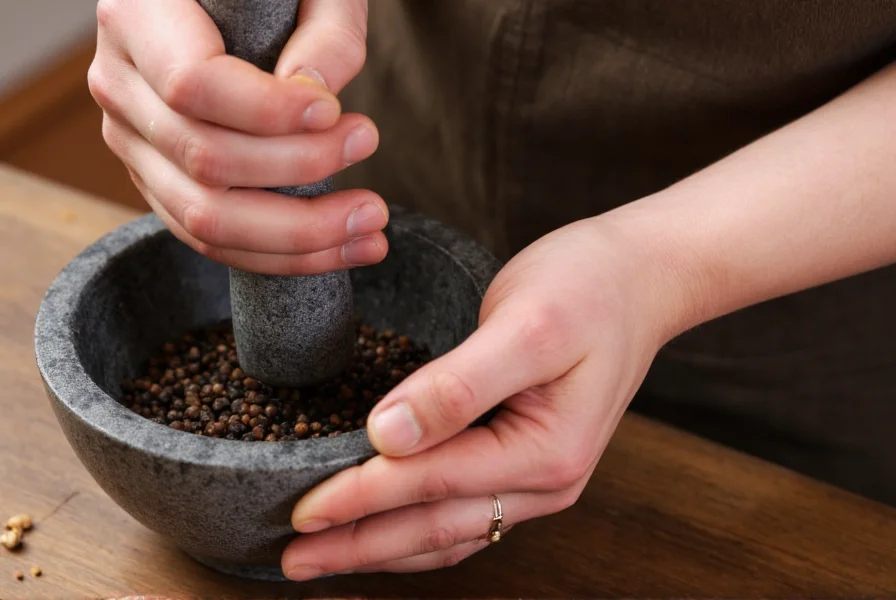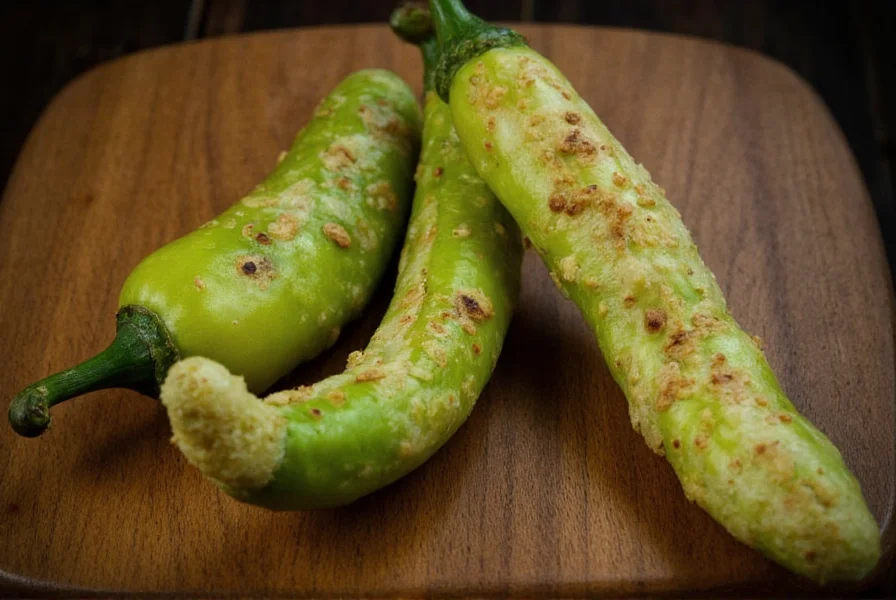Yes, pepper does eventually go bad, but it has an exceptionally long shelf life compared to most spices. Whole peppercorns can remain flavorful for 3-4 years when stored properly, while ground pepper typically maintains quality for 2-3 years. Unlike perishable foods, pepper doesn't spoil in a way that makes it dangerous to consume, but it gradually loses potency, flavor, and aroma over time. The primary concern with old pepper is diminished culinary value rather than food safety risks.
Understanding pepper's shelf life is essential for maintaining the quality of your cooking while minimizing waste. Whether you're a home cook or professional chef, knowing how to properly store and assess your pepper can significantly impact your dishes' flavor profiles. This comprehensive guide examines the science behind pepper degradation, provides practical storage solutions, and helps you determine when it's time to replace your spice collection.
The Science Behind Pepper Degradation
Pepper's longevity stems from its low moisture content and natural antimicrobial properties. The active compound piperine gives black pepper its distinctive bite and also acts as a natural preservative. However, exposure to environmental factors gradually breaks down these compounds:
- Oxygen causes oxidation of essential oils, diminishing flavor
- Light (especially UV rays) accelerates the breakdown of volatile compounds
- Moisture can lead to clumping in ground pepper and potential mold growth
- Heat speeds up the evaporation of aromatic compounds
Unlike fresh foods that develop harmful bacteria when spoiled, dried spices like pepper simply become less potent. The U.S. Food and Drug Administration considers dried spices shelf-stable, meaning they don't require expiration dates because they don't support pathogen growth under normal storage conditions.

Whole Peppercorns vs. Ground Pepper: Shelf Life Comparison
The form of your pepper significantly impacts how long it maintains optimal quality. Whole peppercorns preserve their integrity much longer than pre-ground versions due to reduced surface area exposed to degrading elements.
| Pepper Type | Optimal Shelf Life | Signs of Degradation | Storage Recommendations |
|---|---|---|---|
| Whole black peppercorns | 3-4 years | Faded color, diminished aroma, less pungent when crushed | Airtight container in cool, dark place |
| Ground black pepper | 2-3 years | Dull color, weak aroma, flavorless when tasted | Vacuum-sealed container away from heat sources |
| White peppercorns | 2-3 years | Yellowing, musty smell, loss of sharpness | Opaque container with tight seal |
| Pre-ground specialty peppers | 1-2 years | Significant color change, clumping, no discernible aroma | Refrigeration recommended for maximum longevity |
How to Tell If Your Pepper Has Gone Bad
While pepper won't make you sick when old, it loses culinary value over time. Here's how to assess your pepper's condition:
Visual Inspection
Fresh black peppercorns should be deep brown to black with a glossy sheen. As they age, they become duller and may develop a grayish cast. Ground pepper loses its rich brown color, becoming lighter and more powdery. Significant color changes or visible mold (rare but possible with moisture exposure) indicate it's time to discard.
Aroma Test
This is the most reliable indicator of pepper quality. Fresh pepper has a sharp, complex aroma with citrus and floral notes. Rub a small amount between your fingers to release oils, then smell. If you detect little to no scent or a musty odor, the pepper has lost most of its volatile compounds.

Taste Evaluation
Place a single peppercorn (or small pinch of ground pepper) on your tongue. Fresh pepper delivers an immediate sharp bite followed by complex flavors. Stale pepper tastes flat, one-dimensional, or barely noticeable. Remember that tasting extremely old spices is safe but won't enhance your dish.
Maximizing Pepper Shelf Life: Storage Best Practices
Proper storage dramatically extends pepper's useful life. Follow these evidence-based recommendations:
Air-Tight Containers Are Essential
Transfer pepper from flimsy store packaging to glass or opaque plastic containers with tight-sealing lids. Oxygen is pepper's primary enemy, and quality containers minimize air exposure. For long-term storage (beyond 2 years), consider vacuum-sealed containers which remove nearly all oxygen.
Temperature and Light Control
Store pepper in a cool, dark place away from heat sources. The ideal temperature range is 50-70°F (10-21°C). Avoid storing above your stove or near ovens where temperature fluctuations occur. Light, especially sunlight, degrades pepper's compounds, so opaque containers or dark cabinets provide optimal protection.
Moisture Prevention Strategies
Never store pepper in the refrigerator unless in a perfectly sealed container, as humidity causes clumping and potential mold. In humid climates, add a food-safe desiccant packet to your container. Always use dry utensils when handling pepper to prevent introducing moisture.
Food Safety Considerations: Is Old Pepper Dangerous?
Unlike perishable foods, dried spices like pepper don't support the growth of dangerous pathogens when stored properly. The primary risk with very old pepper is:
- Reduced culinary value - Flavorless pepper won't enhance your dishes
- Potential mold - Only if exposed to significant moisture (discard immediately if mold appears)
- Clumping - Ground pepper may harden but remains safe if no mold is present
The USDA confirms that properly stored dried spices remain safe indefinitely from a food safety perspective, though quality diminishes over time. If your pepper shows no signs of mold or moisture damage, it's safe to consume even when past its prime quality period—though it won't deliver the flavor you expect.
When to Replace Your Pepper
While old pepper remains safe, it loses culinary value. Replace your pepper when:
- You detect no significant aroma after crushing peppercorns
- Ground pepper has lost its characteristic brown color
- Dishes lack the expected pepper flavor despite adequate用量
- Visible mold or moisture damage appears (discard immediately)
For optimal cooking results, consider replacing whole peppercorns after 4 years and ground pepper after 2 years, even if stored perfectly. The investment in fresh pepper significantly enhances your culinary creations with more vibrant flavors and complex aromas.
Frequently Asked Questions
How can I tell if my ground pepper has gone bad?
Ground pepper has gone bad when it loses its rich brown color, shows no aroma when sniffed, and tastes flat or flavorless. Unlike perishable foods, it won't make you sick but will lack culinary value. Discard immediately if you see any mold or moisture damage.
Does black pepper expire if stored properly?
Black pepper doesn't technically expire from a food safety perspective when stored properly, but it does lose potency over time. Whole peppercorns maintain optimal flavor for 3-4 years, while ground pepper stays fresh for 2-3 years. After this period, it remains safe to eat but delivers diminished culinary value.
Can you get sick from using old pepper?
No, you cannot get sick from using old pepper that has been stored properly. Dried spices like pepper don't support pathogen growth. The main issue with old pepper is reduced flavor and aroma, not food safety risks. However, discard immediately if you notice mold or moisture damage.
What's the best way to store pepper for maximum shelf life?
Store pepper in an airtight container away from light, heat, and moisture. Whole peppercorns last longest in opaque glass containers in a cool, dark cabinet. Avoid storing above your stove or near windows. For ground pepper, vacuum-sealed containers provide optimal protection against oxygen exposure, which is the primary cause of flavor degradation.
Why does ground pepper lose flavor faster than whole peppercorns?
Ground pepper loses flavor faster because the increased surface area exposes more of the spice to oxygen, light, and moisture. Whole peppercorns maintain their integrity until crushed, preserving the volatile oils and compounds responsible for flavor and aroma. This is why grinding pepper fresh from whole peppercorns delivers significantly better flavor than using pre-ground versions.











 浙公网安备
33010002000092号
浙公网安备
33010002000092号 浙B2-20120091-4
浙B2-20120091-4